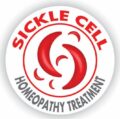Got Questions?
Frequently Asked Questions
What is sickle cell disease?
Sickle cell disease is a genetic blood disorder that affects the shape and function of red blood cells. Instead of being round and flexible, the red blood cells become crescent-shaped and rigid, causing various health complications.
How is sickle cell disease inherited?
Sickle cell disease is inherited in an autosomal recessive manner, meaning both parents must pass on the mutated gene for a child to develop the disease. If only one parent has the gene, the child may inherit sickle cell trait, which usually does not cause symptoms.
What are the symptoms of sickle cell disease?
The symptoms of sickle cell disease can vary in severity and may include chronic fatigue, pain episodes (called “crises”), frequent infections, delayed growth, jaundice, and complications such as stroke, organ damage, or vision problems.
How is sickle cell disease diagnosed?
Sickle cell disease is typically diagnosed through a blood test that checks for the presence of the abnormal hemoglobin S. Newborn screening programs also help identify infants with the condition, allowing for early intervention and treatment.
What treatments are available for sickle cell disease?
Homeopathic remedies are individualized based on the unique symptoms and characteristics of each person. Dr. AK Dwivedi may prescribe remedies such as Arnica montana, Ferrum phosphoricum, Carbo vegetabilis, or others, depending on the specific presentation of the disease in the individual patient. These remedies are believed to help alleviate symptoms such as pain, anemia, and inflammation associated with sickle cell disease.
Are there different types of sickle cell disease?
There are three common types of sickle cell disease in the United States.
– Hemoglobin SS or sickle cell anemia
– Hemoglobin SC disease
– Hemoglobin sickle beta-thalassemia
These can cause sickle pain episodes and complications, but some are more common than others. All of these may also have an increase in fetal hemoglobin which can protect the red cell from sickling and help prevent complications. The medication hydroxyurea also increases fetal hemoglobin.
Myths and facts about sickle cell disease
As awareness of sickle cell increases around the world, it’s important to challenge the myths about the condition. The following myths are common and can affect people who live with the disease, their families and caregivers, friends, and health care providers.
Fact: Sickle cell disease is not contagious at all. This disease is a hereditary blood disorder. And it can only be passed from birth parents to their children. That is why the would-be couple should get tested before marriage.
Fact: Some pain crises in sickle cell disease may be short-lived. People who have this disease have it from birth and will have it throughout their life. However, homeopathic treatment can provide some relief to the patient.
Fact: Actually there are 4 types of sickle cell disease. These include sickle cell anemia, sickle beta-plus thalassemia, sickle hemoglobin-C disease, sickle beta-zero thalassemia. But sickle cell disease is not limited to these, which is the most common form of the condition.
Fact: Pain crises, which can be severe and require medical intervention, are a common complication of sickle cell disease. These pain crises often require prescription pain medicine to provide relief.
Fact: Sickle cell disease can affect the body, mind, and overall life of people with the condition. Sickle cell patients have health issues such as fatigue and anxiety, which may not be understood by those who are not familiar with the symptoms of sickle cell disease.
